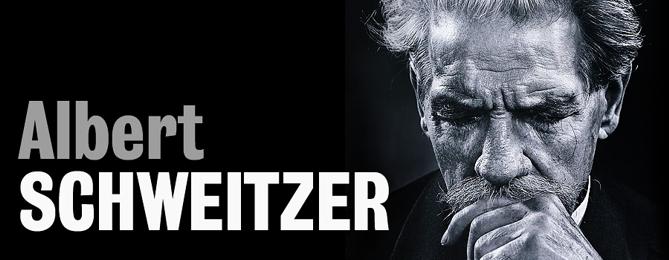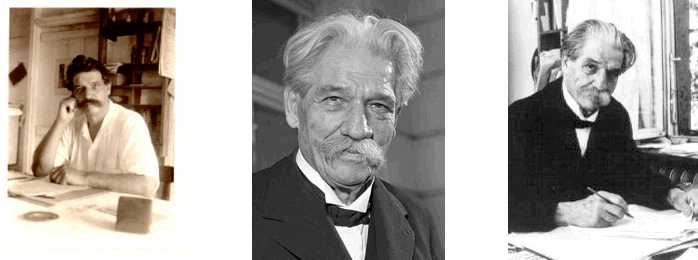
At the height of his influence, Albert Schweitzer was often referred to as the most famous of living men. He inspired millions by his revelation of how rich a human life can be.
He once said, “No one can give a definition of the soul. But we know what it feels like. The soul is the sense of something higher than ourselves, something that stirs in us thoughts, hopes, and aspirations which go out to the world of goodness, truth and beauty. The soul is a burning desire to breathe in this world of light and never to lose it – to remain children of light.”
It is now over several decades since his death, and as we look at what is taking place in the political arena of the United States; in the war-torn areas of the world and the constant strife which appears to be a distinct part of the human psyche, perhaps it is time to listen again to what this brilliant and gentle man had to say during his life.
Schweitzer was born on January 14, 1875. In 1893 he attended the University of Strasbourg and studied theology, philosophy and musical theory. In 1899 he received a Ph.D. in Philosophy, and in 1900 he received a second in theology.
Between 1900 and 1905 he acted as a minister of a small church in Strasbourg. During this period he also wrote several books dealing with general philosophy and ethics, religion and the musical philosophy of Sebastian Bach. He became an expert organist, organ-builder and was recognized as one of the leading musical figures of this time.
In 1905, Schweitzer made a radical career change and decided to devote the rest of his life to the natives of equatorial Africa. He decided that he would study to become a doctor of medicine and reentered the university. In 1909, Schweitzer formulated the international regulations for organ building. In 1913 Schweitzer received his Doctorate of Medicine.
In 1915, while on a 200 kilometer steamboat journey in Africa, he was inspired with a new concept, The Reverence for Life. This phrase would be the description for his future philosophy of life. “As far back as I can remember,” he said, “I was saddened by the amount of misery I saw in the world around me.” For Schweitzer this was not limited to only humans but also the animal world. “The sight of an old limping horse, tugged forward by one man while another kept beating it with a stick to get it to the knacker’s yard at Colmar, haunted me for weeks.”

The sight of animals being beaten or hurt was something he could never understand or accept, from the times of his early youth. “This brutality was quite incomprehensible to me – even before I began going to school – and I wondered why in my evening prayers I should pray for human beings only. So when my mother had prayed with me and had kissed me goodnight, I used to add silently a prayer that I had composed myself for all living creatures. It ran thus: O heavenly Father, protect and bless all things that have breath; guard them from all evil, and let them sleep in peace.”
This gentle but strong-willed man would spend over 50 years helping natives of Africa with their health problems. During this period in Africa, he wrote additional books on the subjects of philosophy, religion, music, art, ethics and human civilization throughout the ages. In 1953, Schweitzer would be awarded the Nobel Peace Prize and $36,000. He would spend all of the money for his leprosy hospital in Africa.
Schweitzer’s general philosophy could be stated as never to destroy life that breathes, unless it is unavoidable. “And by going out of our way to help any living creature in distress we are helping to discharge a debt – a debt of honor – which we owe to the rest of creation for its vicarious sacrifice to our needs. It is after all the only sane and reasonable course we can adopt.”
